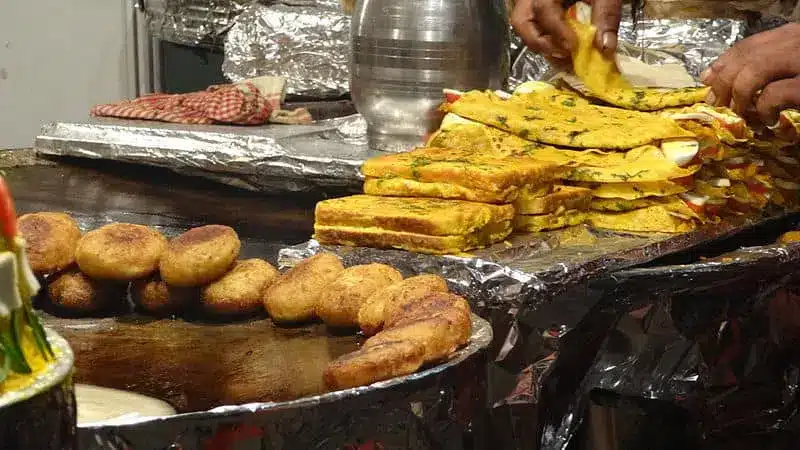Yes, we’ve always known that street food isn’t exactly sanitary. But who can turn down a plate of amazing deep-fried aloo tikki, mind-blowing round, and flaky gol gappas, and don’t even get me started on freshly steamed momos? Even in renowned restaurants, roti, and rice are frequently cooked with tap water rather than bottled. Regardless of the additional measures you may be taking with your dinner. Just one tiny taste could have you getting far too familiar with the toilet for the foreseeable future. From simple snacks to whole dinners, India’s street food is affordable, excellent, and widely available throughout the country. That is, until you have your first case of food sickness.
FSSAI and IHM: Unhygienic Foods
A new study performed by the Institute of Hotel Management, Pusa (IHM) analyzed samples from prominent unhygienic street food locations throughout Delhi and apparently discovered traces of feces in golgappas, momos, and a few other treats! Along with this, they discovered an exceptionally high amount of E.coli bacteria.
According to Dr. Ritika Samaddar, Dietetics, Max Hospital, “E. Coli is a type of bacteria that can cause diarrhea or gastroenteritis. Gastroenteritis is an inflammatory illness that affects the stomach or intestines. E. Coli can be found in street food, chopped fruits, and other contaminated foods. High temperatures exacerbate the condition by multiplying these bacteria, increasing your risk of being ill.”
According to the Food Safety and Standards Authority of India (FSSAI), “After an incubation time frame of about 3-4 days, a variety of gastrointestinal symptoms appear, including mild to severe bloody diarrhea, usually without fever.” The infection is now caused by an extremely severe mutant strain.”
- Advertisement -
IHM examined the unhygienic meal for these bacteria. And discovered that the concentration was over 48 times greater than the legal limit. According to the Central Pollution Control Board and World Health Organization recommendations, the standard limit for total coliform is 50 MPN/100ml, however, the quantity detected was disturbingly high at 2400 MON/100ml.
Food contamination
The CSE has often stated that contamination is a severe concern in India, and we must endeavor to increase both food testing laboratory facilities and expertise. And this isn’t simply a problem in the unregulated food sector; it also affects the regulated industry.
Consider the issue of junk food. To save money, prominent fast food businesses employ chicken mixed with soya, the last batch of vegetables from the wholesale vegetable market, tomato juice combined with red pumpkin sauce, and so on.



